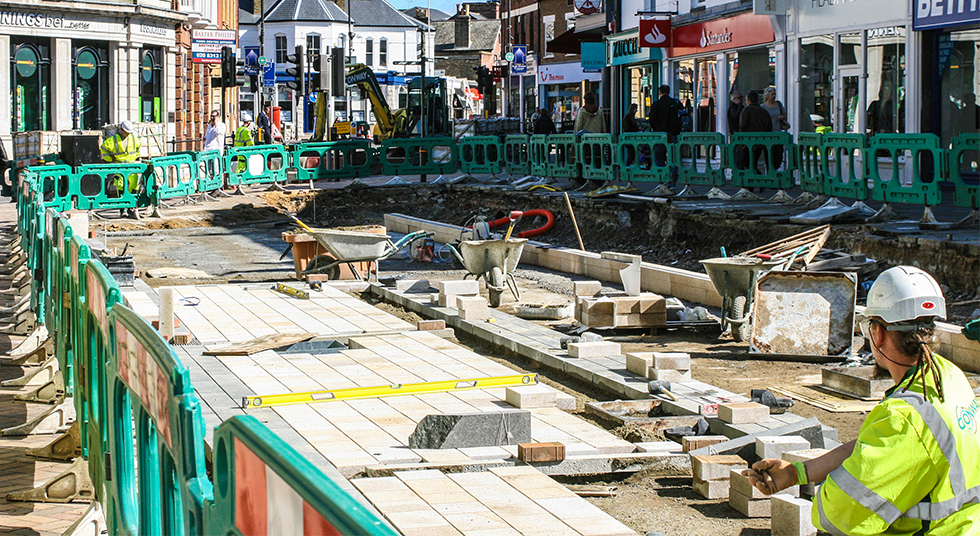How it works
PPM aims to prolong asset longevity by identifying those parts of the network that require low-cost early maintenance. These are captured before more expensive surface or structural treatments are required.
The PPM process is divided into four stages:
- Annual conditioning survey (ACS)
- Programme of works
- Design phase
- Construction phase
Nominations of locations to be part of the program are collected from several different sources/users of the networks, including Highway Inspectors, Ward Members, Amenity Societies and the General Public.
In the ACS, the area defined will be surveyed, with the surveyor giving each part of the carriageways and footways a score on the following:
- Engineering condition score
- Safety defects score
- Visual Appearance Score
- Customer Service Requests Score
Each of the scores are then processed in an equation that will deliver a Value Management Score.
Different weighted criteria such as, aesthetics, defects, customer enquiries, road hierarchy, nominations etc are then applied as per Client’s request in order to deliver a recommended list of schemes for the annual PPM program.
Once the programme of works has been written, a report is produced for each item on the programme, including:
- Design specification
- Proposed treatment
- Investigation information
- Drawings
- Bill of quantities
- CDM
Once these are established, the construction phase can begin, the works can be carried out and stakeholder engagement, progress and budget reports can be produced.

